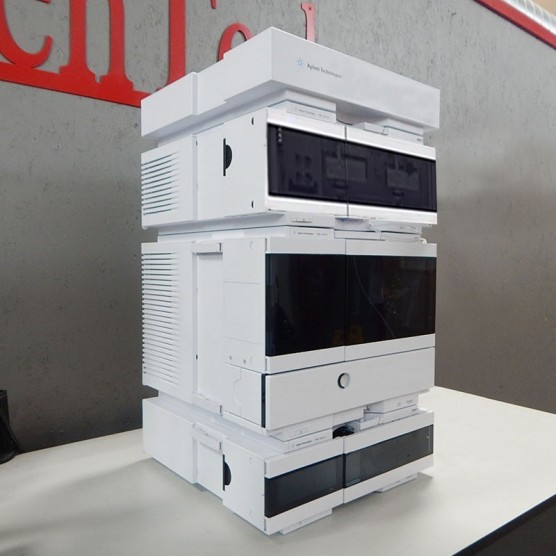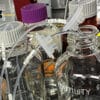Properly functioning HPLC machines are vital to the operations of chemical laboratories that utilize them. However, these systems are susceptible to failure after prolonged use. This guide lists top troubleshooting tips to keep any HPLC machine running as it should.
Inspect for Leaks
A leak in an HPLC component could be the cause of several issues, such as low pressure, variable retention times, and baseline noise. Before running the system, a person should check for loose fittings, as well as leaks in the pump. Replacing the machine’s pump seals may be necessary to resolve persisting issues.
Check Makeup of the Mobile Phase
Problems with the chromatogram relating to baseline noises and spikes may indicate issues with the makeup of the mobile phase. To avoid these inefficiencies, one should ensure the mobile phase’s formulation is free from contaminants and made using only high purity distilled or deionized water. As many deionizers emit natural contaminants, one may need to pass the water through activated charcoal or a preparative C18 column to ensure a clean mixture.
Isolate Pump Problems
If the mobile phase has been formulated and mixed correctly, but noisy baselines are still present within the chromatogram, the pump may be the issue. In addition to baseline noise, pump problems also cause inconsistent retention times and unusual spikes in the chromatogram. Finding and correcting pump problems is generally quite simple. Modern HPLC systems utilize several different pump designs including syringe, diaphragm, and single or dual piston. For individualized assistance, one should consult the operation manual to troubleshoot a HPLC machine.
Adjust Solvent
Fronting peaks or split peaks within an HPLC machine may indicate the need to adjust the solvent. Laboratorians occasionally make the mistake of using non-HPLC grade solvents or other incompatible sample solvents, causing the HPLC machine to return obscure results. If one runs into these issues, they should be sure to adjust the solvent and inject samples during the mobile phase whenever possible.
Complicated HPLC machines are bound to malfunction, but luckily, issues are generally simple to correct. If you ever run into problems with your system, be sure to reference our guide to troubleshooting your HPLC machine. If you need another machine, consider buying through GenTech Scientific. We also offer lab equipment repair services, and you can trust that our team of professionals will bring your machines back to full functionality. Contact us today for more information.







